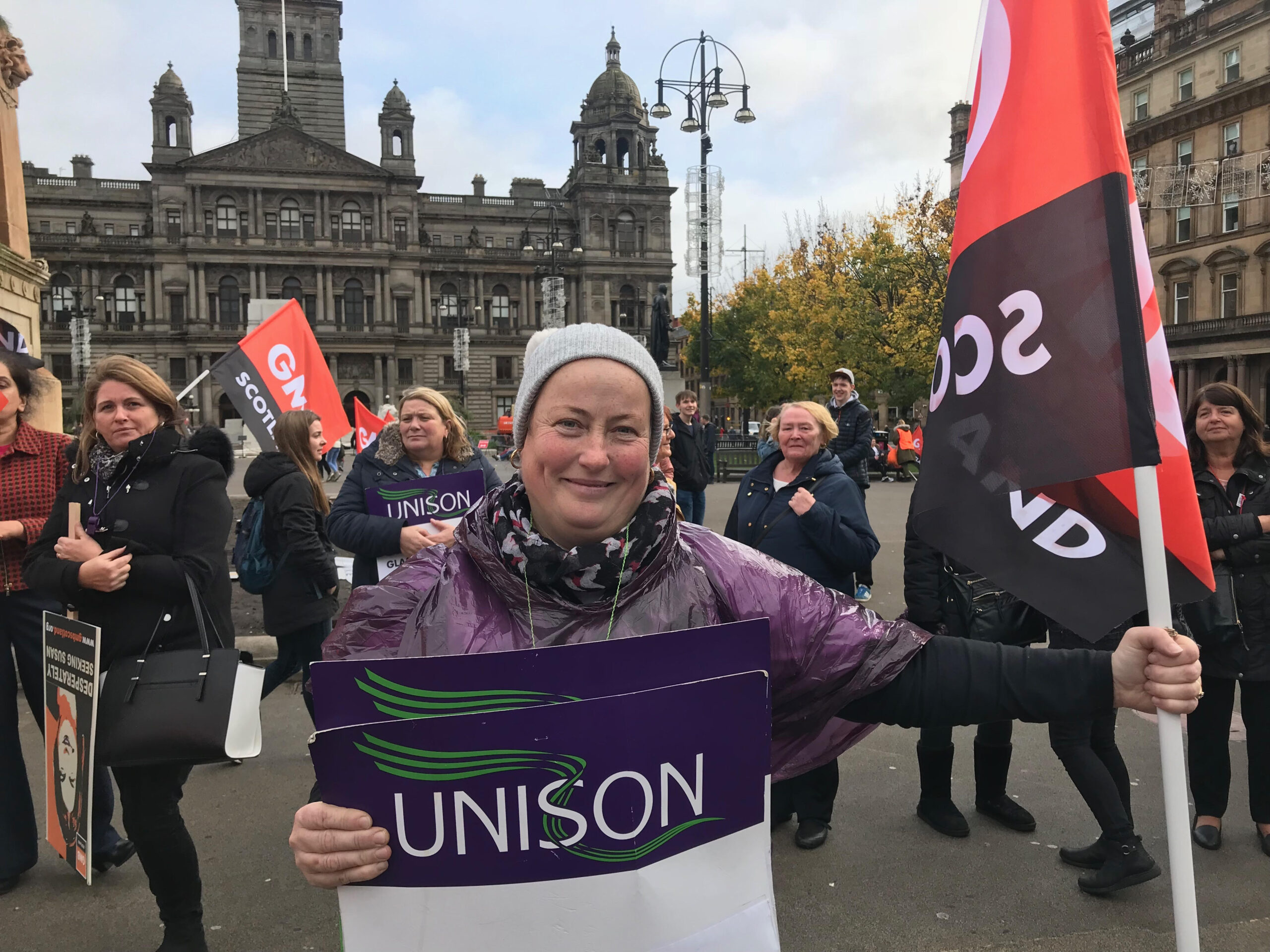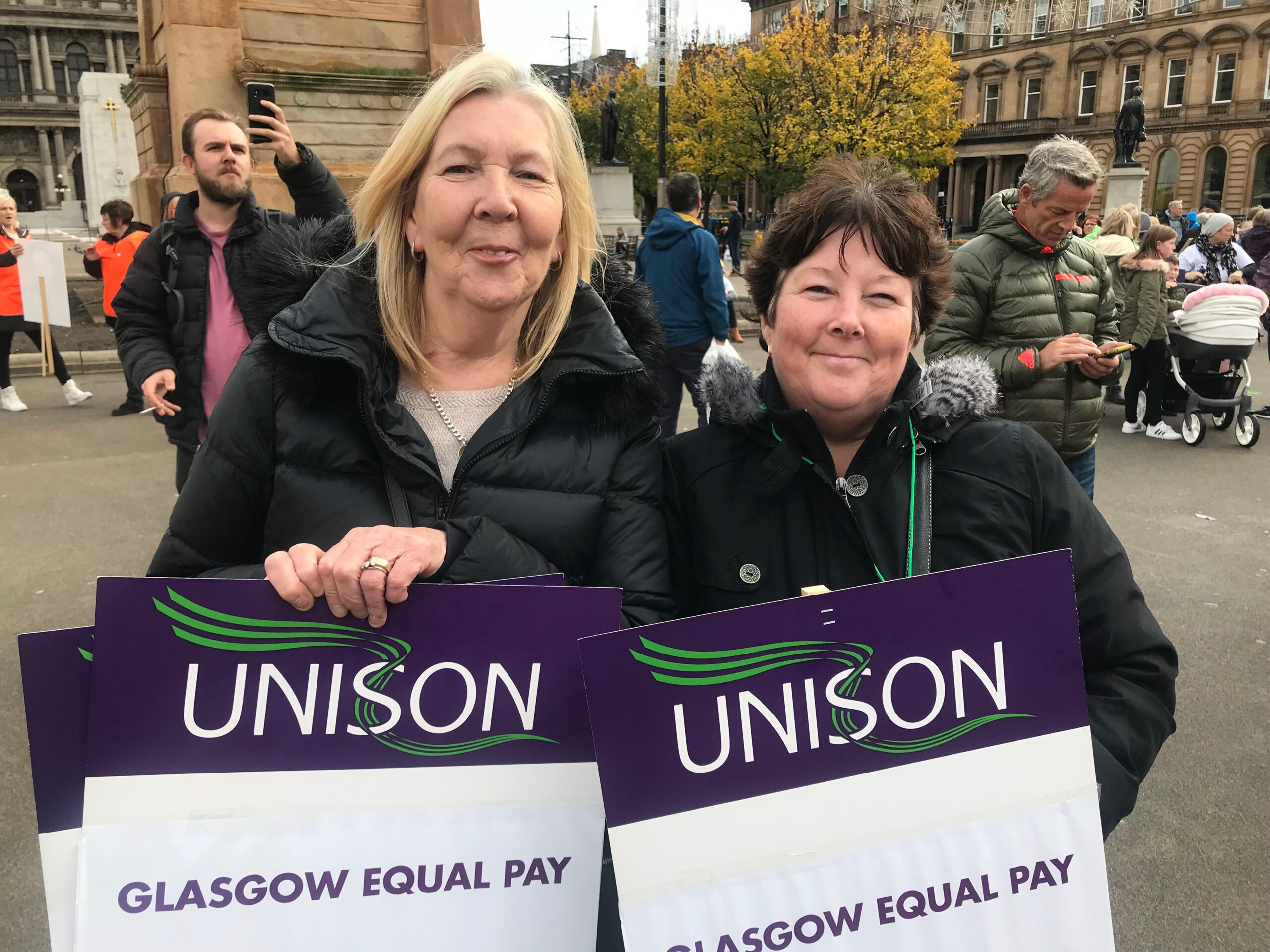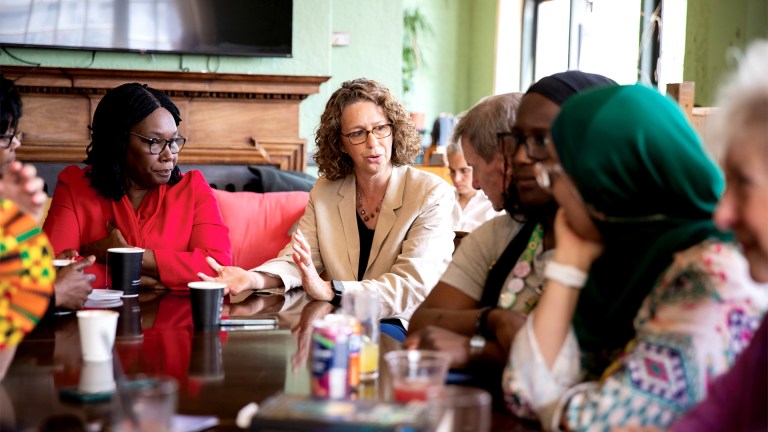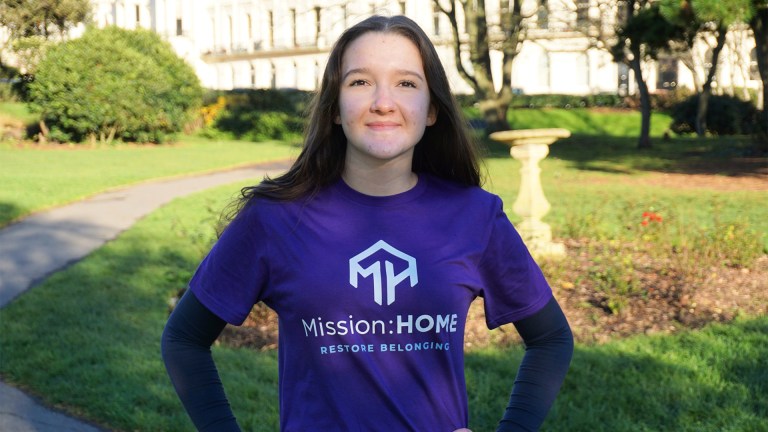An estimated 8,000 public sector women made history today in an unprecedented strike for equal pay in Scotland – and the message from strikers is, “If we can do it, anybody can”.
The Glasgow workers, mostly members of the GMB and UNISON trade unions, are set for 48 hours of stoppage after little progress was made surrounding the dispute between staff and the city council. It is the biggest walkout of its kind in the UK and has the potential to inspire similar action across Britain, according to demonstrators.
The council restructured its payment and benefits system over a decade ago, which led to those in traditionally female-dominated industries, like home care, earning up to £3-an-hour less than workers in the same band. This was ruled discrimination of women by the Court of Session in 2017, and earlier this year the SNP council announced that it was ready to negotiate.
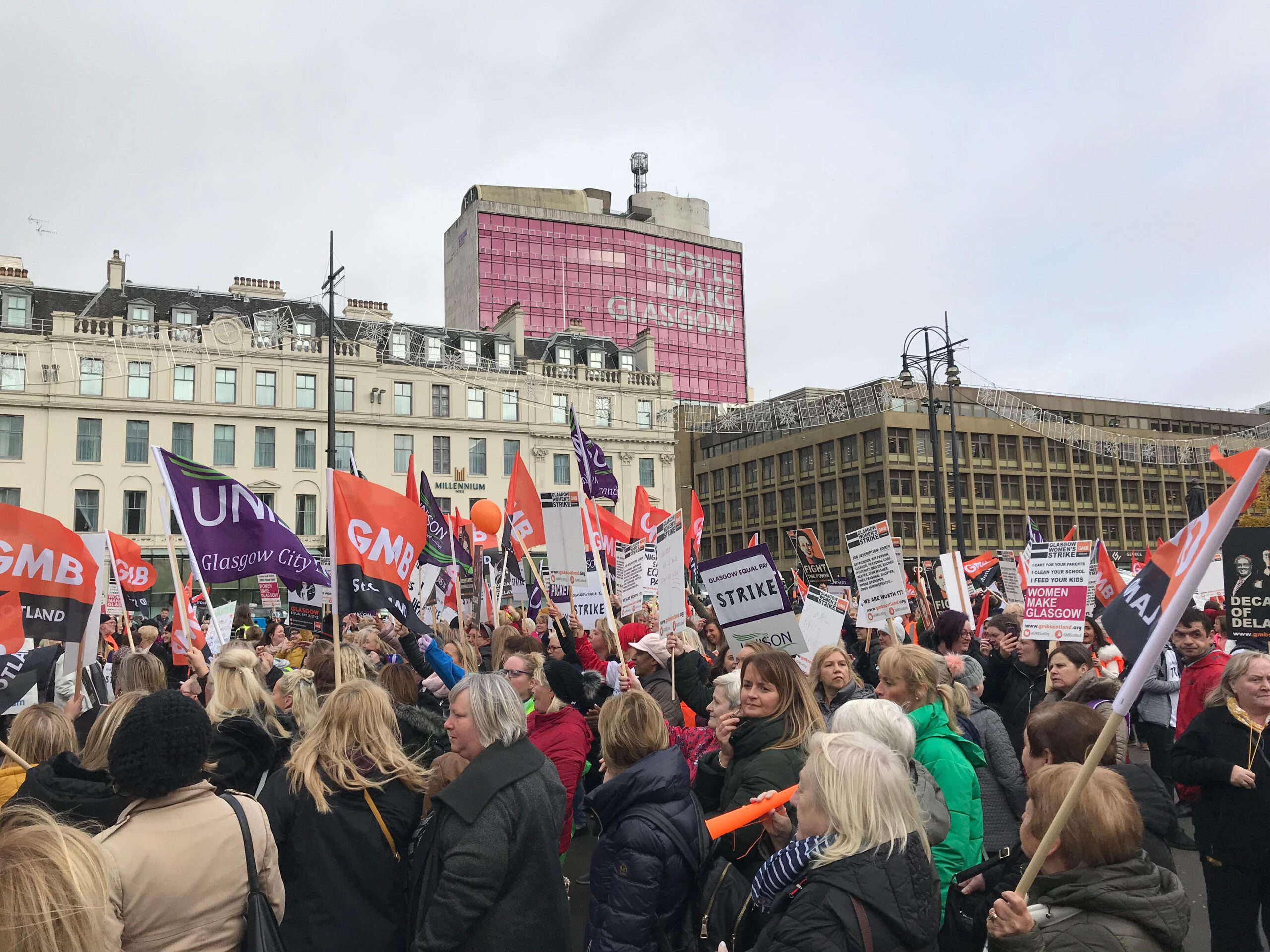
However, talks have so far proved unfruitful and women say they simply want the “money [they] rightfully earned” – a sum up to £1bn in total, employment lawyer Stefan Cross estimated, if all 12,000 claimants are to be compensated.
Bernadette Hamill, who has been a home carer for 17 years, told The Big Issue at today’s strike: “It’s disgraceful that it’s come to this, but it’s what we’ve had to do.” She mentioned that the women striking have been affected by poor mental health as a result of their struggles in the campaign.
Strikers and supporters congregated at Glasgow Green before marching through the city centre to George Square, where speakers included STUC president Lynn Henderson, UNISON Glasgow chair Mary Dawson, Labour candidate Rhea Wolfson and several striking members. The women felt a wealth of support from the public and fellow workers – council refuse staff stood in solidarity with the women by saying no to crossing picket lines, and many agreed that union support had been invaluable. They acknowledged that their action could spark similar organisation across the country – and that they hoped it did.
